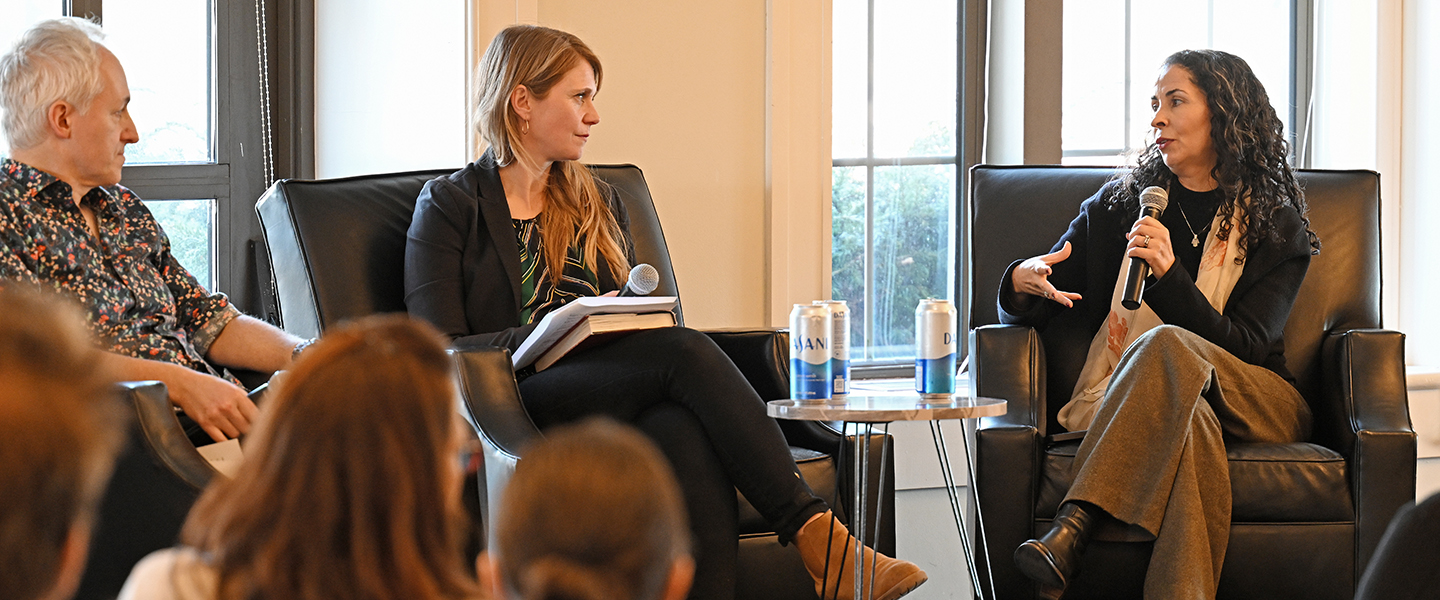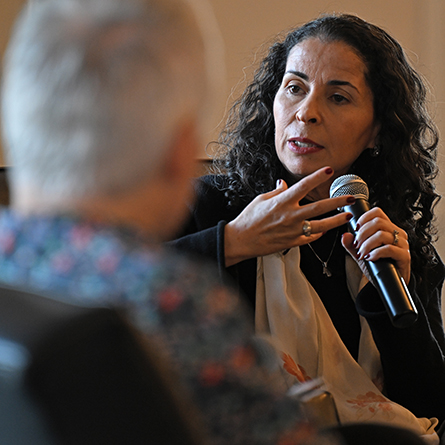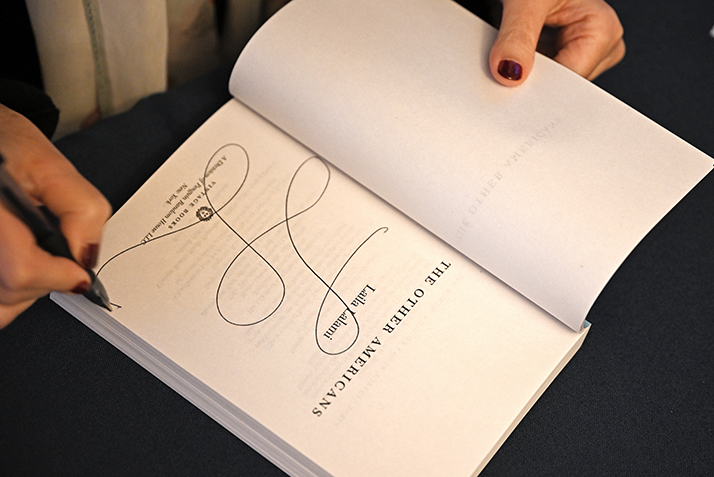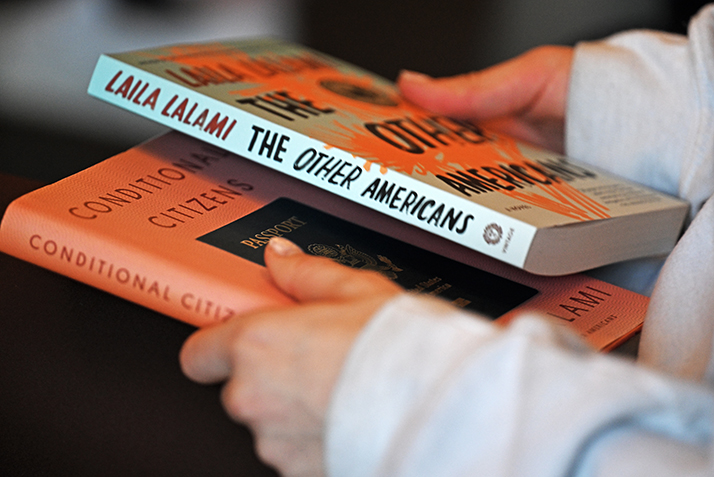
Award-winning Moroccan American author Laila Lalami discusses fiction, citizenship and migration
What does it mean to be an American? Does citizenship truly open all the doors of acceptance and belonging that it purports to? Is identity malleable? How does one handle the shifting sense of self that results from migrating away from the country of origin to an unfamiliar place?
Moroccan American multigenre author Laila Lalami discussed these topics and more with English Professors Marie Ostby and Jeff Strabone in an engaging conversation on fiction, citizenship and migration on Feb. 26. Lalami, who is a distinguished professor of creative writing at the University of California at Riverside, traveled to New London from the Radcliffe Institute for Advanced Study at Harvard University in Cambridge, Massachusetts, where she is completing a year-long fellowship.
She has published five books: Hope and Other Dangerous Pursuits (2005); Secret Son (2009); The Moor’s Account (2014), which won the American Book Award, the Arab American Book Award, the Hurston/Wright Legacy Award and was a finalist for the Pulitzer Prize for Fiction and the National Book Award; The Other Americans (2019), which was listed as one of Time magazine’s 100 Best Mystery and Thriller Books of All Time; and Conditional Citizens (2020), which was long-listed for the Andrew Carnegie Medal for Excellence in Nonfiction. Lalami is at work on her sixth book, The Dream Hotel.
Ostby and Strabone said Lalami first appeared on their radar through The Moor’s Account, which Strabone describes as “an important book that recalls the mostly forgotten history of Islam and enslavement in North America as far back as the 1520s. It’s also a riveting page-turner that all kinds of readers can enjoy.”
Ostby first taught the novel in 2017 in her “Postcolonial Literature Today” class, which she will be teaching again in Fall 2024. She began following Lalami on Twitter and “was intrigued by her nuanced portrayal of contemporary Muslim American life in The Other Americans when it came out in 2019.” She included the novel in her “Words of War and Peace: course and again this semester in “Muslim American Literature.” Ostby added that she recently read Conditional Citizens. “It’s really framing 2024 as an election year for me. I’ve immersed myself in her essays and other opinion writing since then.”
Strabone calls The Moor’s Account one of his favorite novels of the 21st century and has taught it in his first-year seminar, “The Uses of History in Literature,” and in his “Africa: Culture, History, Media” course.
From page to campus
Lalami visited Ostby’s “Muslim American Literature” class on Feb. 26 to discuss her books, career and writing process with students, who read The Other Americans and the first two chapters of Conditional Citizens. Strabone and two of his former students, who studied The Moor’s Account with him previously, also attended.
Among other topics, Lalami discussed her research process for The Moor’s Account, a historical fiction novel narrated by a character named Mustafa, based on an enslaved Moroccan who was the first person of African descent to explore North America. He was one of just four survivors of the Narváez expedition, which set sail from Santo Domingo in what’s now the Dominican Republic with hundreds of members in 1527 to explore and colonize Florida. After reaching Florida, they proceeded by land and by makeshift rafts along the Gulf Coast to what is now Texas.
At a college known for its Arboretum and botany program, Lalami perhaps unintentionally provided a fitting example—researching native plants. “What kind of tree would it be that was there in 1535 in what is now known as Texas?” she asked. “In fiction, you’re trying to render the world as it was lived, and so you need to populate it,” she said. “It’s a little bit like creating sci-fi, except sci-fi is all made up. But with history, you actually have the source; you just have to go and look for it. It can be done. I’m here to tell you that if I can learn about the 16th century, anybody can.”
She added, “I had a set of [historical] constraints, so I essentially crafted Mustafa with these constraints in mind and then made up everything else. You might think that constraints are not helpful, but constraint forces you to be creative and to draw on imagination to make it work.”
Lalami also shared her most important piece of writing advice: Read. “Think about writing as drawing from a reservoir of words,” she said. “You constantly have to go back and draw from that reservoir, so that means you have to refill it. The way to refill it is to read and to put new words in it, new turns of phrases, new ways of looking at the world.”
Jason Askri ’26, an English and biology double major from Brooklyn, New York, who has family in Tunisia, said, “Dr. Lalami’s writing offers a hidden narrative that critiques the ruse this nation presents in its alleged acceptance and support for immigrant families. It was so inspiring to meet a courageous North African author who dedicated years of writing and research to advocate for those struggling to find community in this country.”




